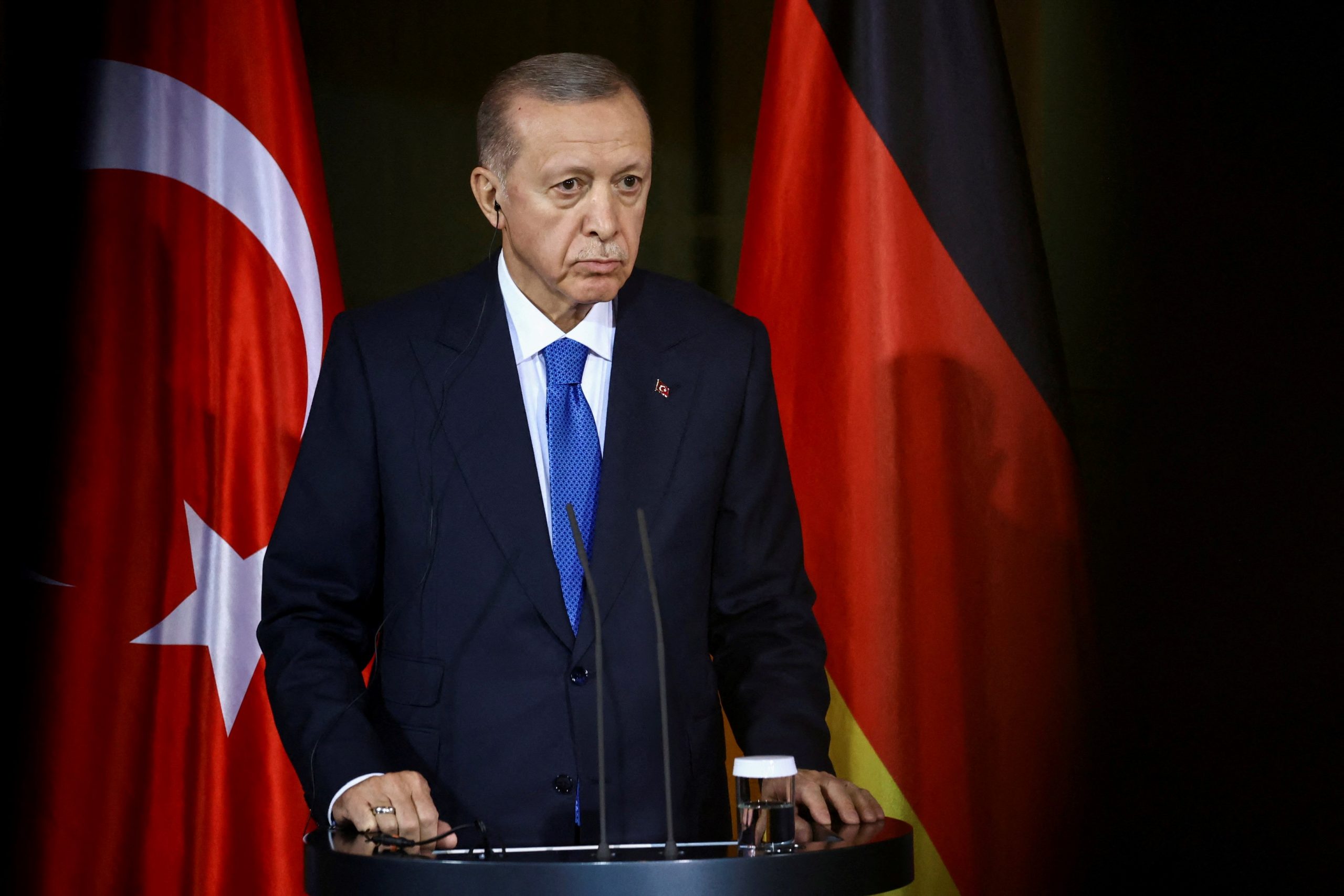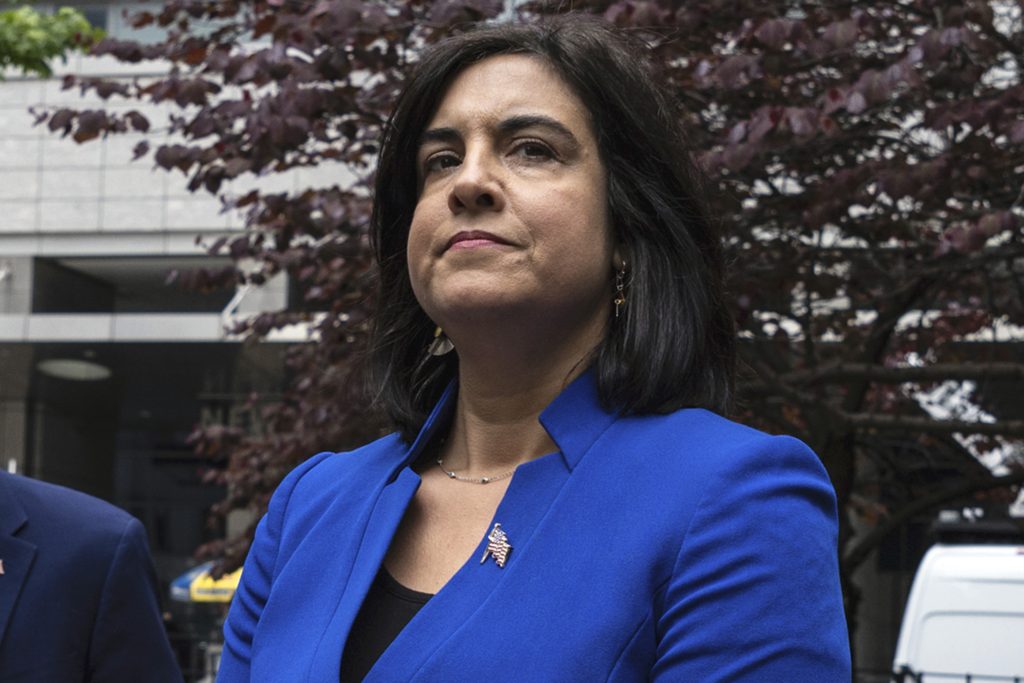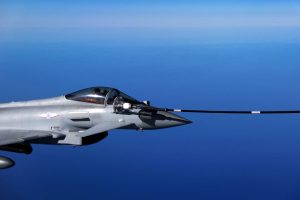When it comes to condemning Israel and the West’s policy in the Gaza war, the Turkish president’s tirades are hard to outdo. Erdogan’s visit to Berlin illustrated just how deep the rifts are between the Turkish president and the Western mainstream. On an international scale of Israel supporters on the one hand and Israel opponents on the other, Berlin and Ankara form the outer ends of the spectrum.
Erdogan caused an international stir with his statements that Hamas is not a terrorist organization but a liberation movement. Shortly before his visit to Germany, he added to this by describing Israel as a “terrorist state” that was in the process of carrying out a “genocide” in Gaza.
Erdogan is notorious for his sharp, often vicious rhetoric. It is not uncommon for him to mercilessly lash out at his critics and opponents during public appearances. Since the start of the war, his linguistic outbursts have reached a new dimension.
What drives the Turkish president to such verbal escalation is a question often asked these days.
Erdogan is a populist, an Islamist, and, above all, an autocrat obsessed with power. He and no one else determines what happens in Turkish politics. Another characteristic that describes Erdogan is his unpredictability, which is why Turkish politics, especially foreign policy, can change from one day to the next.
A common explanation is that Erdogan’s radical rhetoric on the Palestinian issue has domestic reasons and aims at mobilizing the masses for the ruling party. A recent opinion poll refutes this assumption: according to the survey, only 11 percent of Turks surveyed support Erdogan’s alliance with Hamas. 35 percent think that Ankara should stay out of the conflict in the Middle East. “Hamas is not a popular organization in Turkey at all,” says Berk Esen from Sabanci University in Istanbul. “Seculars and most Turkish and Kurdish nationalists are clearly opposed” to Hamas,” says Esen. Therefore, the Turkish expert concludes, “Erdogan’s position is not exactly popular” with the electorate.
Foreign policy considerations and Erdogan’s desire to be acclaimed as the leader of the Islamic world are probably of greater importance. When Erdogan talks about Turkey, he is referring to a country that exerts power and influence far beyond its own borders. Erdogan is “guided by the ambition to appear as the champion of the just cause of ‘the Islamic peoples'”, says Germany’s foremost expert on Turkey Udo Steinbach. The addressees of the radical rhetoric are not the Arab governments, which have adopted a more moderate tone on the Palestinian issue. Erdogan’s main target is the much-cited “Arab street.”
In the heyday of the “Arab Spring”, Erdogan had already positioned himself as the tribune of the revolting masses. His pan-Islamic ambitions did not go down well with Arab rulers concerned about the stability of their regimes. In the course of Erdogan’s escapades in the region, Turkey plunged into diplomatic isolation, from which it was only slowly able to free itself. And into which it has now fallen again in the wake of the Gaza war.
It is striking – and relevant – that the condemnation of Israel, the cursing of the West, does not necessarily coincide with Erdogan’s political practice. Ankara has recalled its ambassador from Israel. However, diplomatic relations were not broken off: “The complete severance of diplomatic relations is not possible, especially in international politics,” Erdogan explained the restraint. Turkish media report that trade relations between Israel and Turkey are also continuing.
At the end of the day, Erdogan is also a pragmatist who knows that there will be a day after, and that Israel will continue to play a key role in the eastern Mediterranean. The fact that in the meantime he is destroying diplomatic porcelain on a grand scale with his poisonous rhetoric is a price the Turkish president believes he can bear.
Dr. Ronald Meinardus is a Senior Research Fellow at the Hellenic Foundation for European and Foreign Policy (ELIAMEP).



